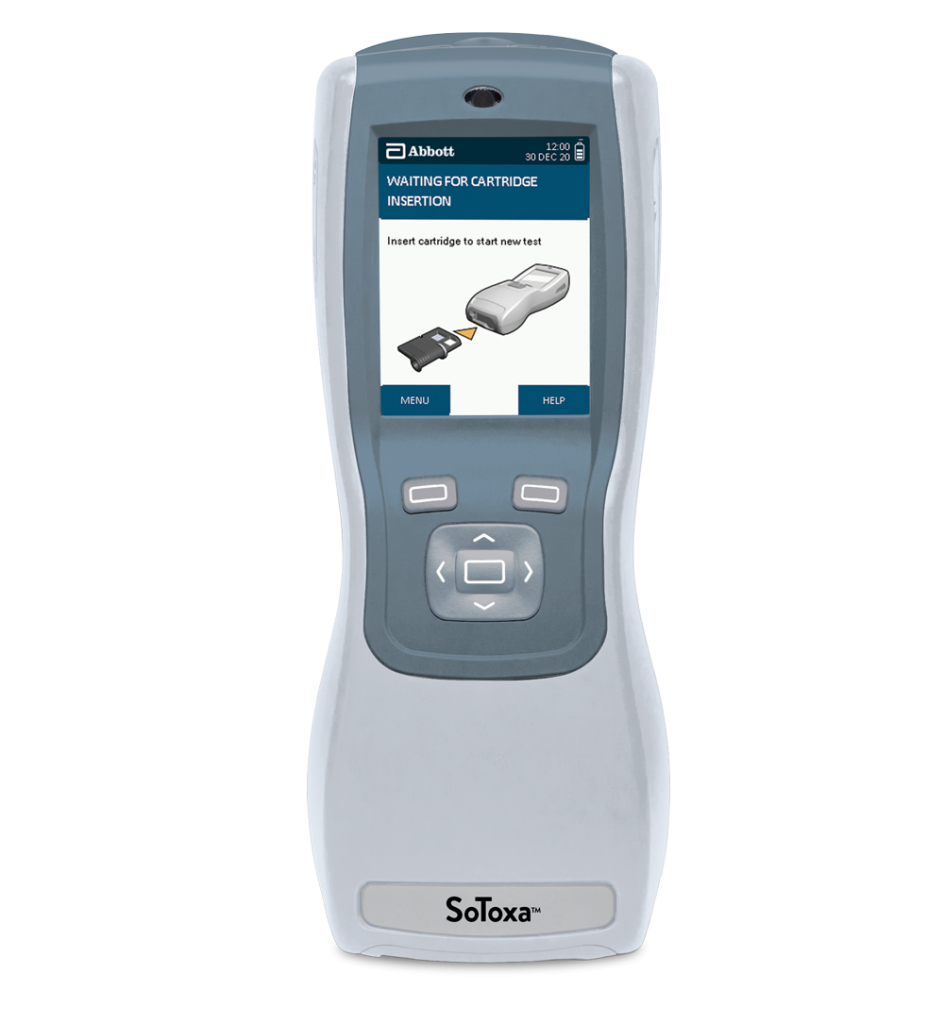
News
Growing concern about drug-impaired driving in Canada: Abbott survey
October 15, 2019 By Staff
 To help law enforcement detect and deter drug-impaired driving, Abbott developed SoToxa, a hand-held device that analyzes a subject’s oral fluid.
To help law enforcement detect and deter drug-impaired driving, Abbott developed SoToxa, a hand-held device that analyzes a subject’s oral fluid. One year after Canada legalized recreational marijuana, a new survey shows nearly three quarters of Canadians (71 per cent) are concerned about the impact drug-impaired driving will have on highway safety. Abbott, a global healthcare company, led the research.
The study, which captured data from 1,002 adults across the country, uncovered several “sobering statistics.”
For example, while the number of drunk-driving deaths has decreased, the study found half of Canadians (46 per cent) feel little is being done to curb drug-impaired driving, and the overwhelming majority (88 per cent) believe law enforcement lack the necessary tools for road-side testing.
Abbott’s research also found:
- 33 per cent know someone who has driven high, but the percent increases for Gen Z (38 per cent) and Millennials (35 per cent)
- 30 per cent have heard someone say the phrase, “I drive better when I’ve smoked marijuana”
- 57 per cent believe the number of drugged driving arrests are increasing
To help law enforcement detect and deter drug-impaired driving, Abbott notes it developed SoToxa, a hand-held and “highly accurate” device that analyzes a subject’s oral fluid and “within five minutes determines if they have recently taken drugs.”
SoToxa, which was approved for use in Canada in July 2019, can detect marijuana, cocaine, opiates, amphetamines, methamphetamines and benzodiazepines.
Print this page